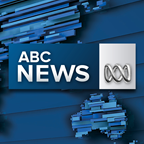
The Reserve Bank has reaffirmed its commitment to keeping the official cash rate close to zero for years, despite signs of rising inflation around the world, particularly in the United States.
Key points:
- The RBA says "monetary policy will need to remain highly accommodative for some time yet"
- Capital Economics says there is a "fundamental concern" that the low inflation era of the past 30 years may be over
- The Federal Reserve is meeting this week and will no doubt be focused on recent high inflation readings in the US
In the minutes from its June board meeting, Australia's central bank said the cash rate would stay at 0.1 per cent "for as long as necessary" until actual inflation was sustainably back within its 2 to 3 per cent target band.
"Inflation and wages remain subdued despite the strong recovery in the economy and employment," the minutes noted.
The RBA sees inflation temporarily rising above 3 per cent this year, as price reductions introduced during the pandemic are reversed, but expects that spike to quickly fall back below its target.
Official consumer inflation in Australia was running at just 1.1 per cent over the year to March.
The minutes point to strong cost containment by businesses, meaning it would "take some time" for the labour market to tighten enough to generate long-awaited wage increases.
"It's likely that overall wages growth will need to be sustainably above 3 per cent to achieve the target, and this is well below the current level."
Reiterating its earlier commitment to keep the cash rate near zero until "at least" 2024 to attain full employment to boost wages growth and thereby increase inflation, the minutes noted that "monetary policy will need to remain highly accommodative for some time yet".
While the Reserve Bank does not see any inflation spike in Australia, economists are becoming increasingly nervous about evidence of rising prices in the US.
Consumer inflation spiked to 5 per cent in May, with major increases in prices for used cars, air travel and accommodation.
While the US Federal Reserve has described rising inflation as "transitory", economists are looking for signs of sustained inflation that might force rate rises sooner than central banks currently expect.
'End of the low inflation era'?
Capital Economics chief economist Neil Shearing said the larger-than-expected rebound in US inflation carried signs of more sustained price increases that could lead to an eventual overheating of the US economy.
"One way to think about it is whether we are now witnessing the "rebirth" of inflation," he wrote in a note to clients.
Mr Shearing pointed out that the "death" of inflation was caused by several factors working together, such as globalisation and the rise of China pushing manufacturing costs down, central banks deliberately targeting lower price rises and the collapse in organised labour slowing wages growth.
"Some of the key pillars of the low inflation era are now starting to weaken," he noted, with peak globalisation and indications that central banks are now more concerned with full employment than keeping prices so tightly under control.
However, Mr Shearing added that labour markets remained "flexible", limiting wage demands, and new technologies may add a new deflationary force.
Big week ahead in economics
Concerns about the trajectory of inflation come as the US Federal Reserve prepares to meet to discuss the direction of its massive monetary stimulus, which has pumped trillions of dollars into the US economy during the pandemic.
While no change of strategy is expected at this meeting, economists will be watching every word to determine if concerns about rising inflation might prompt an earlier withdrawal of stimulus and interest rate rises than previously expected.
Domestically, this week's official employment report from the Australian Bureau of Statistics will also be closely watched, with the jobless rate expected to remain steady in May and around 30,000 new jobs created.
RBA governor Philip Lowe will deliver a key speech on Thursday in which he is likely to provide an update on the central bank's massive bond buying program introduced at the start of the pandemic to keep money flowing through the economy and government borrowing costs low.




























